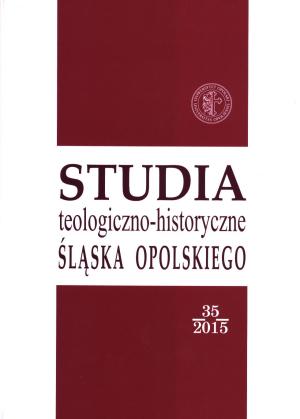Was heißt menschenwürdig sterben?
What does it mean to die out with dignity?
An answer from the Catholic moral theology
Author(s): Eberhard SchockenhoffSubject(s): Christian Theology and Religion, Theology and Religion
Published by: Uniwersytet Opolski
Keywords: autonomy of patient; euthanasia; assisted suicide; killing on demand
Summary/Abstract: A crucial category of contemporary medical ethics is the idea of autonomy. The principle point of the physicians activities is neither a duty of respect for the good of the patient (salus aegroti suprema lex), nor his protection against the damages (neminem laedere), nor in the case of doubts the service pro life (in dubio pro vita). Those maxims of physicians’ activities are located in the principal idea for respect of autonomy of the patient. Hardly from this point of view can the physician’s actions gain moral and legal legitimacy. Without the agreement of the patient, based on the information, that is the realization of his autonomy, and that he gives his opinion on the proposition of treatment, the physician does not have a recommendation to action for the betterment of the patient.In spite of the central meaning of the idea of autonomy in contemporary medical ethics, there is incompatibility about its exact significance. The principle of autonomy as a specific rule in Anglo-Saxon ethics is the first of the four bridge principles, which have led to the physicians’ activity. Beside the respect of the patient’s autonomy, there is also the principle of justice which belongs to them, and the maxims of avoiding of damages and the making of good. The present paper talks about the reasons in the discussion about euthanasia connected with the argument of patient autonomy. The author deals with how the meaning of autonomy is presented, goes to the critical reflection about its application into the debates about euthanasia. He discusses the question of whether euthanasia is an expression of the respect of the autonomy of the patient and if it is the only one which helps in this situation. Furthermore the discussion indicates the morally relevant distinction between killing and the permission to die, and the question as to whether assisted suicide is a better alternative than killing on demand.
Journal: Studia Teologiczno-Historyczne Śląska Opolskiego
- Issue Year: 35/2015
- Issue No: _
- Page Range: 177-192
- Page Count: 16
- Language: German

